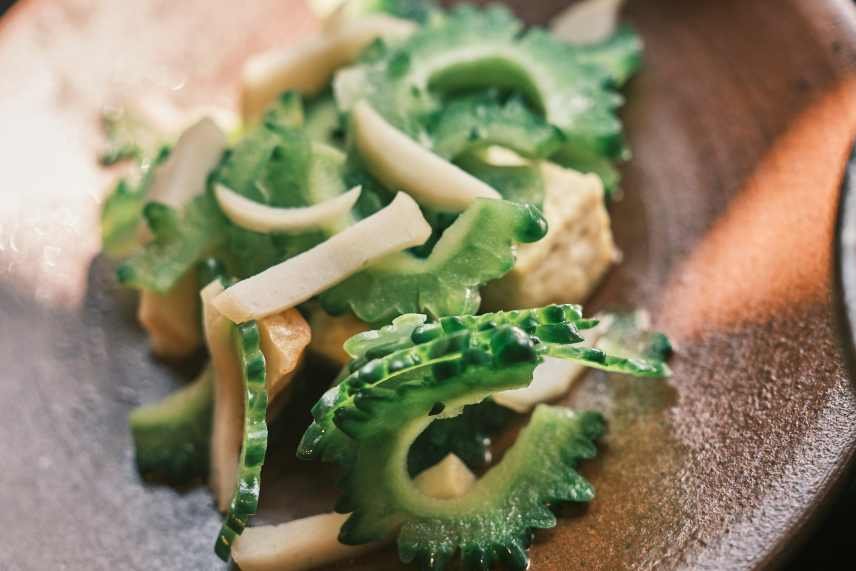The Okinawa Diet is a plant-based eating plan rich in vegetables, fruits, and whole grains, emphasizing low-calorie, nutrient-dense foods traditionally consumed by the long-lived Okinawan population.
Introduction to the Okinawa Diet
The Okinawa diet, hailing from the Japanese island famed for its high number of centenarians, stands out as a beacon of health, longevity, and nutritional wisdom. This diet is a key component of what makes Okinawa a Blue Zone—a designation for regions of the world where people live significantly longer than average.
It’s characterized by its focus on low-calorie, nutrient-dense foods, integrating a rich variety of vegetables, soy products, and a minimal intake of animal proteins. This approach not only contributes to the remarkable longevity of the Okinawan people but also supports a lifestyle that values wellness, community, and an active lifestyle.
Beyond its nutritional aspects, the Okinawa diet is deeply intertwined with the island’s culture and traditions, reflecting a holistic view of health that extends beyond mere food intake. Okinawans emphasize the importance of social connections, physical activity, and a positive outlook on life, which, together with their dietary habits, create a comprehensive framework for a healthy and fulfilling life.
This unique blend of diet and lifestyle has placed Okinawa on the map as a prime example of how dietary habits can influence overall health, longevity, and community well-being, making it a subject of interest and study among nutritionists and health enthusiasts worldwide.
Smoothies for Weight Loss and Flat Tummy: Discover the Okinawa-Inspired Secret
Key Components of the Okinawa Diet
At the heart of the Okinawa diet lie the vibrant purple and orange sweet potatoes, a core staple that exemplifies the diet’s focus on low-calorie, nutrient-dense foods. These sweet potatoes are much more than a simple carbohydrate source; they’re packed with vital nutrients and antioxidants, such as beta-carotene and vitamin C, which are crucial in combating oxidative stress and promoting heart health.
Additionally, their high fiber content supports digestive health, illustrating how traditional Okinawan cuisine integrates foods that support various aspects of well-being.
Beyond these colorful tubers, the Okinawa diet encompasses a rich array of green and yellow vegetables, ensuring a broad spectrum of vitamins, minerals, and phytonutrients. Daily servings of seaweed and tofu contribute essential plant-based proteins, omega-3 fatty acids, and a variety of minerals like iodine and calcium, which are pivotal for thyroid function, bone health, and more.
This emphasis on plant-based foods, particularly soy products like tofu, offers a sustainable protein source while providing isoflavones, compounds known for their potential in reducing the risk of certain cancers.
Through such a diverse selection of foods, the Okinawa diet showcases a holistic approach to nutrition that not only sustains longevity but also enhances quality of life by preventing nutritional deficiencies and chronic diseases.

Health Benefits of the Okinawa Diet
The Okinawa diet, with its rich array of whole foods, primarily plant-based ingredients, and minimal intake of processed and animal products, has been closely associated with a spectrum of health benefits that contribute to the remarkable longevity of the Okinawan people.
This dietary pattern is predominantly anti-inflammatory and rich in antioxidants, which play a crucial role in reducing oxidative stress and inflammation in the body, two factors implicated in the pathogenesis of chronic diseases.
The diet’s emphasis on foods like purple sweet potatoes, which are not only a source of complex carbohydrates but also loaded with antioxidants, exemplifies how traditional Okinawan eating habits support immune function and disease prevention.
Research has consistently shown that populations adhering to the Okinawa diet have significantly lower rates of cardiovascular diseases, such as heart disease and stroke, as well as certain types of cancer, including breast, prostate, and colon cancers, compared to Western populations.
These benefits are attributed to the diet’s low saturated fat content, high levels of phytonutrients from a wide variety of vegetables, and the inclusion of omega-3 rich seafood in moderation. Furthermore, the traditional Okinawan diet is naturally low in calories yet high in fiber, which aids in weight management and contributes to the prevention of obesity-related conditions like type 2 diabetes and hypertension.
The longevity and vitality of the Okinawan people stand as a testament to the diet’s effectiveness in promoting health and warding off disease.
Get Started With the Okinawa Tonic Now!
This article contains affiliate links, which means that I might receive a commission from qualifying purchases, at no extra cost to you. Thank you for your support.
Potential Drawbacks and Limitations
While the Okinawa diet boasts an impressive array of health benefits, it has its potential drawbacks and limitations, particularly when considering the nutritional balance and cultural adaptability of the diet. The traditional Okinawa diet, with its emphasis on plant-based foods and minimal consumption of animal products, may lead to deficiencies in certain nutrients such as vitamin B12, iron, and omega-3 fatty acids, which are typically found in higher concentrations in meat and fish.
These deficiencies can manifest in health issues like cheilosis, which is characterized by cracked lips, and delayed menstruation among women, highlighting the need for careful planning and supplementation to ensure nutritional adequacy. Furthermore, the diet’s high reliance on soy products could raise concerns for individuals with soy allergies or hormonal sensitivities, necessitating adjustments or alternatives to maintain its health benefits.
Moreover, the globalization of food culture and the increasing availability of Western fast food in Okinawa have introduced dietary challenges that threaten the continuation of traditional eating habits. This shift towards more calorie-dense and processed foods has been linked to a rise in obesity rates and cardiovascular diseases within the population, marking a significant departure from the health outcomes historically associated with the Okinawa diet.
The younger generations in Okinawa, influenced by global trends and convenience food culture, may find it particularly challenging to adhere to the traditional dietary practices of their ancestors. This transition underscores the importance of cultural preservation and the need for public health initiatives to encourage the Okinawan population and those interested globally to maintain or rediscover the dietary patterns that have contributed to the remarkable longevity and health of Okinawa’s older generations.

Dietary Practices and Philosophy
The Okinawan dietary practices and philosophy offer a unique approach to eating that significantly contributes to the region’s notable longevity and health. Central to this philosophy is the concept of “hara hachi bu,” a practice that encourages individuals to eat until they are only 80% full, thereby avoiding overeating and promoting longevity through calorie restriction without malnutrition.
This principle not only aids in weight management but also fosters a culture of mindful eating, where the focus is on the quality and nutritional value of food rather than quantity. By adhering to this practice, Okinawans naturally consume fewer calories, contributing to their lower rates of obesity and associated chronic diseases.
In addition to “hara hachi bu,” the Okinawan diet emphasizes the consumption of whole, unprocessed foods, predominantly plant-based, with minimal animal products. This dietary pattern is rich in vegetables, legumes, and soy products, while meat, dairy, and eggs are consumed in much smaller quantities than in typical Western diets.
For example, sweet potatoes, a staple in the Okinawan diet, are not only a rich source of carbohydrates but also provide vital nutrients and antioxidants, showcasing the diet’s focus on nutrient-dense foods. This emphasis on plant-based nutrition supports individual health and promotes environmental sustainability by reducing the demand for animal products and associated resources.
The Okinawan approach offers insights into achieving long-term health and well-being by combining these dietary practices with a philosophy that values moderation, mindfulness, and sustainability.
Get Started With the Okinawa Tonic Now!
This article contains affiliate links, which means that I might receive a commission from qualifying purchases, at no extra cost to you. Thank you for your support.
Cultural and Modern Influences
The cultural landscape of Okinawa has undergone significant changes in recent years, with the introduction of American fast-food chains marking a pivotal shift in eating habits. This transition towards Western dietary patterns, particularly among the younger generation, represents a move away from the nutrient-dense, plant-based diet that has been a cornerstone of Okinawan culture and a key factor in its notable longevity.
The impact of these changes is profound, leading to increased occurrences of health issues such as cardiovascular diseases, which were previously less common when traditional dietary practices were the norm. This shift not only affects physical health but also signifies a loss of cultural identity tied to traditional foodways.
Despite these challenges, there is a growing movement to preserve and promote the traditional Okinawa diet as an essential aspect of cultural heritage. Recognizing the diet’s role in promoting health and longevity, community leaders, nutritionists, and cultural preservationists are working together to educate both locals and the global community about the benefits of the Okinawa diet.
Through initiatives such as cooking classes, local food festivals, and educational programs, there is a concerted effort to revive interest in traditional foods and practices, emphasizing the importance of dietary choices in maintaining health, vitality, and cultural identity. These efforts highlight a broader understanding of the Okinawa diet not just as a means for individual health improvement but as a vital component of cultural preservation and sustainability.
Conclusion: Adapting the Okinawa Diet for Contemporary Lifestyles
Adapting the Okinawa diet to suit contemporary lifestyles involves recognizing the core principles that contribute to its health benefits while also understanding the practical challenges of strict adherence outside its cultural context.
The diet’s foundation in plant-based nutrition, with a significant emphasis on purple and orange sweet potatoes, provides a rich source of nutrients and antioxidants known to support health and longevity. By incorporating more of these whole, unprocessed foods into meals, individuals can capture the essence of the Okinawa diet.
Mindful eating practices, such as the Okinawan principle of “hara hachi bu” or eating until one is 80% full, encourage a healthier relationship with food and can aid in preventing overconsumption. However, the dietary restrictions on certain food groups, like dairy and meat, may necessitate nutritional adjustments to maintain a balanced diet in different cultural settings.
Furthermore, while the traditional Okinawa diet is inherently low in processed foods and high in antioxidants, adapting it to modern lifestyles means finding accessible alternatives that retain nutritional value without sacrificing convenience.
For example, integrating legumes, whole grains, and a variety of fruits and vegetables can mirror the diet’s nutrient profile, even if specific Okinawan ingredients are unavailable. The challenge lies in balancing these dietary principles with the realities of modern, often busy lives that may only sometimes accommodate the preparation of time-intensive, traditional meals.
As such, focusing on the diet’s broader dietary patterns—rich in plant-based foods, low in calories, and mindful of portion sizes—can offer a practical approach for those looking to enhance their diet and health. This adaptation underscores the importance of flexibility, allowing for the incorporation of Okinawa diet principles in a way that respects individual health needs, dietary preferences, and lifestyle constraints.
Smoothies for Weight Loss and Flat Tummy: Discover the Okinawa-Inspired Secret

Are you on the lookout for a delicious, nutritious way to slim down and achieve that coveted flat tummy? Look no further! Introducing smoothies inspired by “The Okinawa Flat Belly Tonic” – a dietary approach that draws from the age-old wellness practices of the Okinawa region known for the longevity of its people.
These smoothies for weight loss and a flat tummy are not only easy to make but also pack a punch with their health benefits.
Continue reading: Discover the Okinawa-Inspired Smoothie Secret
Discover the Power of Sumatra Slim Belly Tonic: Your Path to a Slimmer Waist and Healthier Life

Sumatra Slim Belly Tonic is not just another weight loss supplement; it’s a revolutionary blend designed to target your belly fat, boost your metabolism, and improve your overall health with its natural ingredients.
Continue reading: Discover the Power of Sumatra Slim Belly Tonic
Recent Posts
Vegan Meal Replacement Smoothie Recipes for Quick and Nutritious Fuel
Vegan meal replacement smoothies offer a convenient way to pack essential nutrients into a quick and delicious beverage. These recipes allow individuals to enjoy a balanced, healthy meal while...
Carrot Smoothies for Weight Loss: A Delicious Way to Shed Pounds
Carrot smoothies for weight loss have gained popularity as an effective choice for busy women looking to lose weight. Packed with vitamins, minerals, and fiber, carrots provide essential nutrients...


